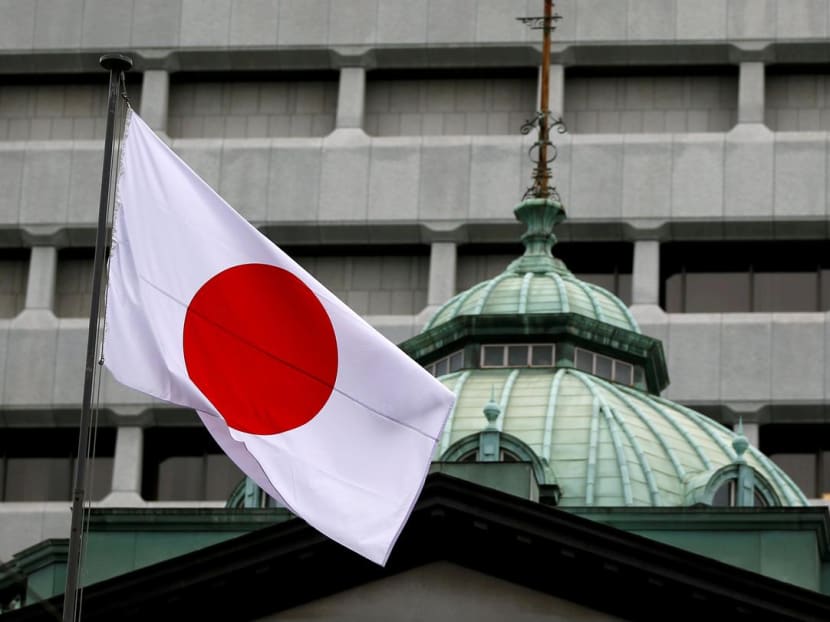Japan may be Asean’s best friend amid US-China rivalry: Survey
SINGAPORE — Japan could be the unlikely political power that Asean countries turn to at a time when confidence in the United States as a strategic partner is waning and China’s regional influence is increasingly side-eyed.

The study noted that Japan is the only major power that achieved an overall confidence vote above 50 per cent.
SINGAPORE — Japan could be the unlikely political power that Asean countries turn to at a time when confidence in the United States as a strategic partner is waning and China’s regional influence is increasingly side-eyed.
A survey of professionals released by Iseas-Yusof Ishak Institute’s Asean Studies Centre on Thursday (Jan 16) found that attitudes have shifted in Japan’s favour — becoming the most trusted major power among Southeast Asians today.
Respondents from the 10 Asean member states took part in the targeted online poll entitled The State of Southeast Asia, with more than 1,300 professionals from the fields of research, business and finance, public sector, civil society and the media responding. This is the second year the survey has been conducted.
Some 61.2 per cent said they were confident Japan will “do the right thing” in contributing to global peace, security, prosperity and governance in the 2020 edition of the survey.
While this dipped slightly from the 65.9 per cent in the previous year, the study noted that Japan is the only major power that achieved an overall confidence vote above 50 per cent.
Trust in other major — the US, China, the European Union, and India — fell under that threshold.
WANING US INFLUENCE
The study comes amid an uncertain period of US-China trade relations, though many commentators have pointed out that the US also risks losing hearts and minds in the region ever since US President Donald Trump ascension in 2016 raised the possibility of reversing the previous Barack Obama administration’s unfinished “pivot to Asia” policy.
On Monday, veteran diplomat Tommy Koh said that the conflict between the US and China has been a diplomatic nightmare for Asean since it maintains close relations for both sides.
The trade talks and partial agreement set to conclude this week is also unlikely to be a game changer, he added.
"Asean will find it increasingly difficult to be friends with both," he had said at a conference organised by the Bank of Singapore on Jan 13.
The survey on Thursday showed that this may already be the case — 47 per cent of respondents had little to no confidence in the US’ ability to be a strategic partner and a provider of national security, up from 34.6 per cent who felt that way last year (2019).
“If the US is perceived to be increasingly taking a back seat in regional security, who can the region turn to for new partnerships?,” the study then asked the 615 participants who indicated that they had little to no hope in US’ reliability.
In response, 31.7 per cent picked Japan, while 20.5 per cent selected the EU and 20.3 per cent chose China.
More Singaporean respondents picked the EU and China (23.9 per cent each) over Japan (23.1 per cent) for the same question. The study did not give a reason for why Singaporeans chose EU and China over Japan.
Japan also came first in another question on broadening Asean’s strategic options, with the researchers noting that Asean member states have hedged against the uncertainties of the US-China rivalry by expanding their strategic options beyond the two superpowers.
When respondents were asked who the Asean should seek out as a third party to hedge against the rivalry, 38.2 per cent picked Japan. The EU came second with 31.7 per cent of the vote.
WHY IS JAPAN TRUSTED
The poll also asked those who were confident about Japan’s leadership abilities why they trusted Japan. More than half of the Asean respondents said Japan is a responsible stakeholder that respects and champions international law, a view “widely shared” in Singapore, Vietnam and Thailand, noted the study.
But among those who distrust Japan, nearly half (49.5 per cent) think it “does not have the capacity or political will” for global leadership, with a quarter (26.9 per cent) stating that Japan is “distracted” by its domestic affairs as well as its relationships with North-east Asian countries, and is thus unable to focus on global concerns.
The study said it was noteworthy that none of the reasons for distrust relates to any perceived negative attributes or behaviours by the Japanese that would affect the Asean region.
In terms of soft power, Japan once again claimed the top spot as the most popular destination to visit, with one in four (26.2 per cent) of respondents choosing it as their top travel choice.
Within Asean, Thailand was the favourite destination (29.6 per cent), followed by Singapore (21.1 per cent) and Indonesia (17.8 per cent).
Japan’s security concerns about its immediate neighbourhood may not be unfounded, as nearly half (49.6 per cent) of the respondents also recognized that the increased military tensions from three potential flashpoints — in the South China Sea, Taiwan Straits and the Korean Peninsula — as one of the top three security challenges facing South-east Asia.
Asked about their take on the top security risks this year, majority of respondents flagged the risks of domestic political instability, which included ethnic and religious tensions (70.5 per cent), an economic downturn (68.5 per cent) and, more intense and frequent weather events resulting from climate change (66.8 per cent).








